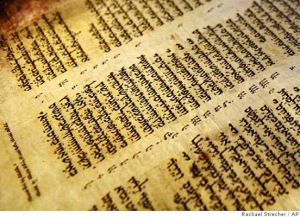It seems to be obvious to me that it should go without saying, but experience both historical and contemporary requires me to emphasize and re-emphasize this. Exploiting Halacha and the halachic process in order to manipulate power, political, social, economic or any other is beyond obscene and should never occur. Unfortunately, all too often it does. It’s going on right now and deserves nothing but contempt.
The Maharal of Prague (16th Century) remarked in his Introduction to his own book which explores Pesach and our Redemption from Egypt, Gevurat HaShem, God’s Power, that since only God is perfect, God being unique in the universe, everything else is, of necessity, imperfect. That within the realm of the imperfect are Man and all of our creations which we take for granted. However, we seem to want to declare the Torah, so closely identified with The Creator as also perfect, which generates the hopeless expectation that Halacha is also “perfect”. But we need to keep in mind that holy, complex and multidimensional as halacha is, it’s not identical with God and is, there, also imperfect.
One definition of “perfect” is invariable and never-changing, in other words, literally performed by Yehuda in biblical days exactly as Levi is obligated today. That position instantly reveals itself as absurd.
For example, even something as straightforward as kashering a kitchen depends on so many factors including, of all things, the wealth of the person taking on these mitzvot. (There are a number of leniencies one can make in order to avoid devastating financial damage, but at the end of the day, whichever path, the strictest or the most lenient, the food produced in the kitchens is EXACTLY as kosher as the other.
One can charitably see an idealistic, God-devoted motive to the recent drift (post Emancipation/Enlightenment, end of 19th Century), where the possibilities of action and association opened as no other time for Europe’s Jews, leading many to stray, leading many more to double down and adopt severe inflexibility, to build, from the inside, higher and higher ghetto walls, no longer merely to contain the Jews, but also to hold modern thought at bay.
The trouble is, however, neither of those objectives are the reasons for Halacha. Rather, and we must always keep this in mind, the only purpose of Halacha is to guide us to respond to the eternal question, “What does God want me to do at this moment?” Of all the choices facing each of us at every instant, what will create the greatest positive value, not necessarily in our human calculations, but in terms of Ratzon HaShem, the Divine Will.
Although the phrase Tikkun Olam has become very popular in recent years, the current definition looks very different that what we’ve always meant by the phrase. We’ve always worked on the principle that God, not we, can “pre-visualize” a perfect world, so our goal is to constantly search for how God’s Will is manifesting Itself in this ever-changing, imperfect, world, lurching from our collective attempt to refine and hone in closer to the ideal.
Since the very definition of imperfect is needing change, and our goal is reaching, or approaching sufficiently close, this ever-changing target, Halacha, like all life, is, at any one frozen point in time, imperfect. But the search is, by necessity, a dynamic one, requiring radical courage to evaluate our past efforts and if we see they fall short, then to reject them, or at least reject their utility in the future.
Somewhere, between our Jewish People and The Creator and His goals for us, is this imperfect but, hopefully, evolving Halacha, casting the weave that ties us ever more intimately with the only unchanging, perfection that exists, HaKadosh Baruch Hu.
rabbizeitlin.com

